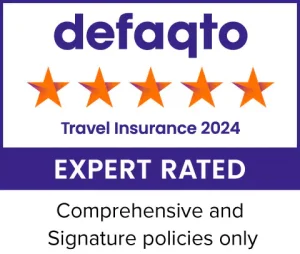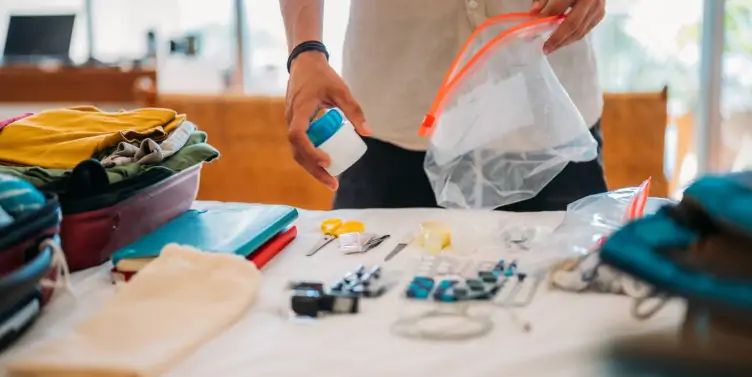


Get a faster response from a member of our team.
Alternatively, you can give us a call. You may be charged a £15 fee for making a change to your policy over the phone. You can make changes without additional charge by logging into My Staysure.

With almost half of the UK’s adult population now regularly taking prescription medication, it’s important to make sure you don’t get caught short when travelling with medication.
Here are some things to bear in mind to make your journey as smooth as possible when taking medicines abroad.
Check the rules for the countries you are travelling to (including those you are passing through), as different countries have different regulations. You can check with the embassy of the country you are travelling to.
Leave plenty of time to request prescription medication from your doctor as it can take a few days to process. You may also want to make sure your local pharmacy has the medication in stock.
Make sure you order enough medication to cover the time you’re away. We recommend taking an extra week or two worth of medication in case of any delays, damage or loss.
When travelling, carry your medication in your hand luggage where possible. If you get separated from your hold luggage for any reason, you won’t have the added stress of not having your medication with you.
Make sure that you carry your medication in its original packaging so it’s clear what it is. It’s always a good idea to carry your prescription with you as well.
Some medications and equipment (such as needles and syringes) may require a signed letter from your doctor, so check with the embassy of the country you are going to.
If you need to carry over 100ml of medicine in hand luggage you may also need a letter from your doctor stating what it is you need it for. Speak to your airline ahead of your flight.
It is also helpful to carry a letter listing your medical conditions and the generic (not just branded) names of the medicines. Not only can this help when you go through customs, but may be useful if you need any medical attention during your trip.
Important: Your GP practice may charge for writing this sort of letter as this is not part of routine NHS care.
If you take a ‘controlled drug’ there are specific rules that may apply. If you aren’t sure if what you are taking is classed as a controlled medicine, check your medication list with your pharmacist and the embassy of the country you are going to.
Again, you may need a letter of proof from your doctor or a personal licence which you can show to border control or security if asked.
Be sure to ask your pharmacist if there are any special requirements for storage of your medicines while travelling. If you keep your medication in the fridge, you may need to consider travelling with a cool bag or thermos flask, particularly when going to a hot destination.
Check your medication will be in-date for the duration of your trip. The NHS advises not to take medicines after their expiry date.
It’s important to choose a policy that will cover your pre-existing medical conditions to protect you against any medical emergencies. If you’re travelling with a condition requiring medication, travel insurance that covers pre-existing medical conditions can give you peace of mind for your next trip.
